‘I love my job’: What keeps Mike Cannon-Brookes standing out from the flock
Atlassian’s Mike Cannon-Brookes isn’t going anywhere as the $72bn software maker takes on tech titans Microsoft and Google in the AI race. And he’s keen to share his wisdom.
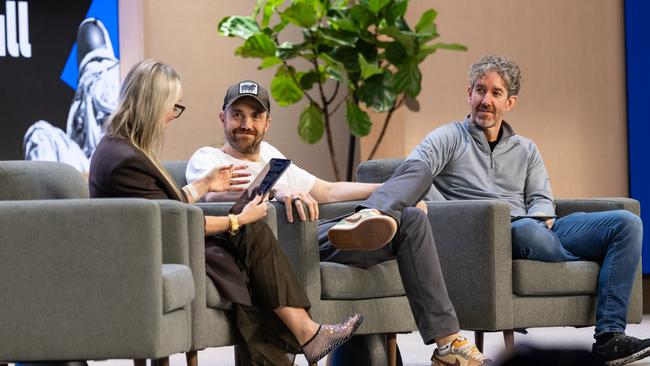
Mike Cannon-Brookes leans back into a chair in one of the side rooms of The Venetian’s sprawling convention centre in Las Vegas, wearing a white t-shirt, jeans and his long silver-streaked hair tucked beneath one of his trademark baseball caps.
On his hat is an image of a solitary black sheep.
He has made a career of standing out from the corporate flock - building a $US47.8bn ($72.8bn) software empire - that is now capitalising on remote working and the rise of artificial intelligence, the two biggest trends to hit workplaces in decades. And he has a message for the militant return to the office brigade: trust your workers.
As he sees it, if corporates hire “a bunch of idiots” who don’t want to do a job there’s a chance they’ll “goof off” when left to their own devices working from home. But hire some adults who can think for themselves? Less goofing off.
It’s a practice Cannon-Brooke’s has adopted across Atlassian’s global workforce of 11,000 employees, and proof the remote working revolution works - and is here to stay.
“There’s no debate that the workplace will never be the same as it was,” Cannon-Brookes says.
“I don’t run into any customers who have a purely in-person, nine to five, five days a week, everybody must be in the office all the time. That is the exception now.
“Now, there are companies where nobody works in an office. They don’t have a physical building. It’s entirely remote. That is also probably the exception. There’s a huge spectrum.”
But office mandates are not the answer, with Cannon-Brookes saying “draconian” orders is a productivity crusher.
Cannon-Brookes is in a candid mood. Four days earlier Scott Farquhar, who founded Atlassian with Cannon-Brookes 23 years ago, announced his resignation as the company’s co-chief executive.
It was a surprise move, ending a corporate partnership that has been branded the ‘Lennon and McCartney’ of tech.
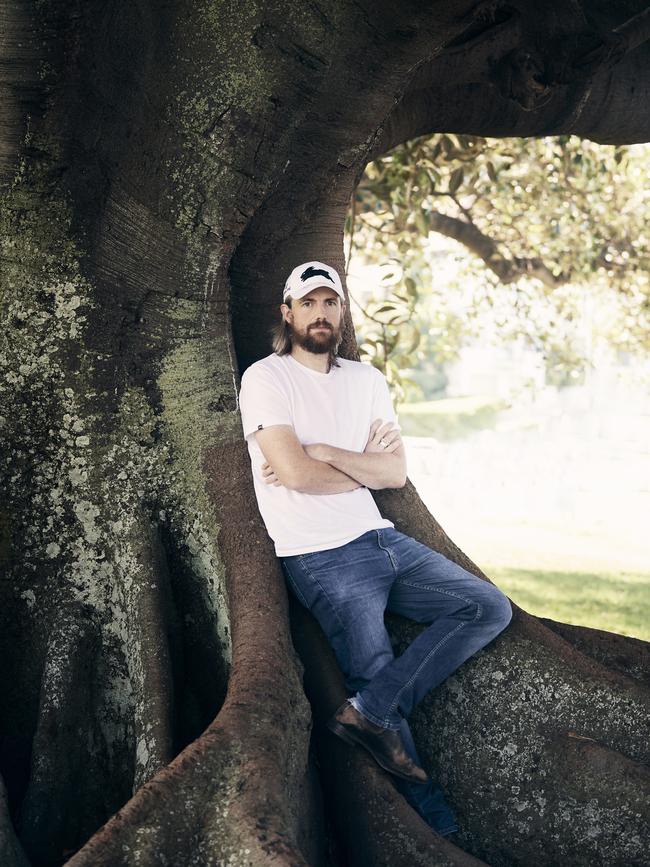
But while Farquhar, his best mate, has called time on his executive role at Atlassian, Cannon-Brookes isn’t planning on going anywhere, declaring he is not done at the company he co-founded almost quarter of a century ago.
“I don’t feel like I’ve had a 23-year job. I’ve had a series of one-to-two-year jobs. It’s not like this job is the same as it was two years ago, right, so it is still extremely interesting and challenging on a daily basis.”
Cannon-Brookes unveiled a raft of artificial intelligence-powered updates to Atlassian’s suite of software, including Jira and Confluence, in Las Vegas this week - a move that places the Australian tech darling head-to-head with Microsoft, Google and Amazon in the AI race.
Investors welcomed the news, with Atlassian’s Nasdaq-listed shares soaring 6.2 per cent to $US183.55 on Thursday (US time) - adding about $US600m to Cannon-Brookes’s wealth.
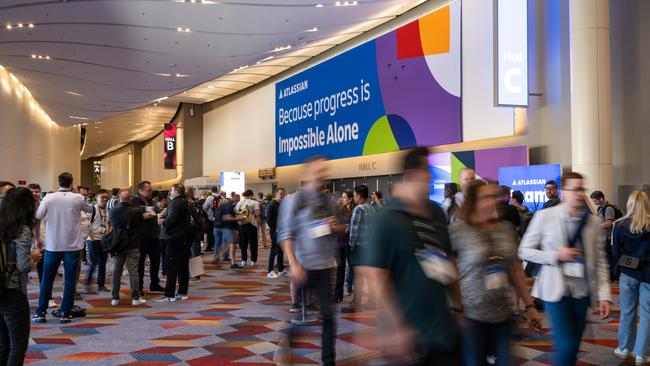
The shift to remote work - fuelled initially from pandemic-era lockdowns - and now AI is how Atlassian is differentiating itself from its bigger rivals by focusing on how to make teams more efficient and productive rather than individuals.
Atlassian is using its own experience, managing thousands of employees scattered across the globe, many of whom aren’t working close to one of its offices, to provide a “system of work” to help its 300,000-plus customers - which range from NASA to Breville - to navigate this new era.
“Pre-Covid, we were a distributed company,” Cannon-Brookes says.
“We had an office in Sydney, an office in San Francisco, an office in New York, Amsterdam and Austin. We had 10 buildings which each had 500 people. Now we have 500 buildings, which have 10 people in them. Conceptually, we have flipped the equation around and we’ve gone from being distributed to more super distributed.”
To help make this shift easier, Atlassian has unveiled a new product, called Rovo, which will allow companies to build AI “agents” that are capable of performing thousands of basic tasks.
Workers will be able to draw insights from copious amounts of raw data - even on third party software such as Microsoft SharePoint and Google Workspace - across a company, turning “information into action in a heartbeat”.
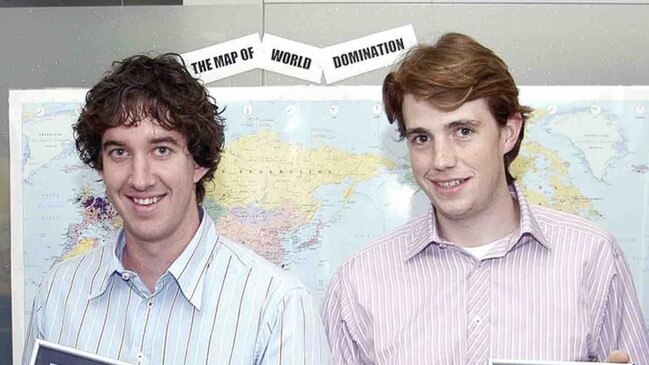
Such AI tools are not new. Microsoft, among the many tasks its Copilot can perform, has created what it is effectively “meetingless meetings” whereby staff can use the software to summarise and query elements of meetings they may have missed.
But Atlassian has taken it a step further, dispensing with many meetings altogether.
It specialises in asynchronous working, which allows employees to collaborate on platforms such as video messaging platform Loom - which Atlassian acquired for $1.5bn last October - to share information with each other outside of real time when it best suits them. It has so far recorded almost 500 million minutes on Loom since it bought the company, removing what it says is the equivalent of 500,000 meetings from staff calendars, freeing people up for higher value, and productive, tasks.
Rovo is designed to lift productivity further, tracking corporate goals and objectives via basic verbal prompts. Atlassian says this means staff will no longer have to wait for half-yearly performance reviews and can adapt to changes in a company’s strategies and priorities more quickly.
All this technology has made it possible for many people to work anywhere. But resistance to the change remains. Some of Australia’s biggest companies have been mandating that employees return to the office full-time or on certain days a week.
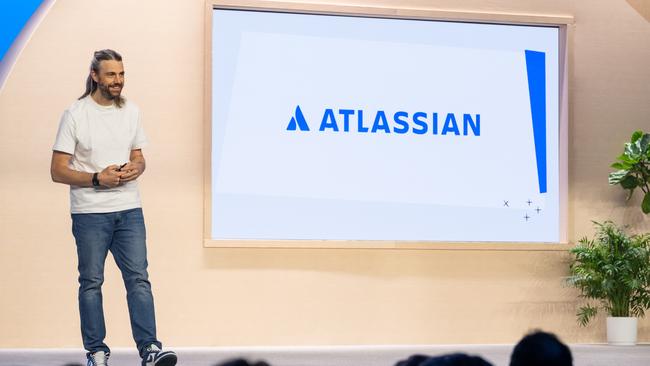
Last week, Coles even urged workers not on its payroll to return to its headquarters, saying the trend is limiting its ability to efficiently operate its supply chain and properly stock its stores for major shopping events like Easter and Christmas.
Cannon-Brookes doesn’t comment on Coles but is critical of companies ordering workers back to the office. Some of these mandates, he says, stem more from commercial real estate decisions, rather than what’s better for the companies, raising the question of what problem they’re really trying to solve.
“Their mandates usually have some asterisk on them. They don’t want to upset the employees, totally reasonably, right? So very few have been draconian in the mandate and often it’s like ‘return to the office, you must be in at least three days a week’.
“The problem with those mandates is actually the blurry lines. If you don’t admit there are shades of grey - you’d like to pretend the world is black and white - but really it’s a shade of grey, you end up with like just a loss in the gap.
“Usually that loss is they don’t have a good working style for remote workers. So people are just goofing off and doing stuff. And they don’t know how to understand it, manage it. Purely remote people feel left out, so then they will leave anyway.”
So how has Atlassian been able to “conceptually flip the equation”?
“The number one answer is you hire mature adults. People don’t write that down. Their problem is they ask ‘is there any technical solutions?’ and I’m like ‘no, the first solution is if you hire a bunch of idiots and who don’t want to do a job and they goof off, I mean, OK is that their problem or yours?’,” Cannon-Brookes says.

“If you hire a bunch of mature adults that have a purpose and a reason for being there and want to do that job, then they’re gonna goof off less. Let’s use that as a starting point. Secondly, you still need to manage people in a remote environment.
“I struggle to find a job where people can not show up to work with a good manager, who’s like attentive to detail, cares about their people, is like thinking about what they’re doing, like tracking their work - and not tracking like some draconian, evil thing - just giving a shit about what people were doing. It’s not hard.”
While Atlassian builds software to make this task more streamlined, Cannon-Brookes says its products are not a substitute for good management.
“With the remote discussion we look for these technical solutions rather than just if we have good managers, and we have good management, and we hire mature adults, we pay people well and all those sorts of things. If we’re a good company doing things thoughtfully and intentionally, that erases such a huge proportion of those problems.”
If employers do this right, it will help combat a tight labor market and skills shortage, bolstering staff retention rates.
“We have employees in the Northern Territory, 50-some employees in Tasmania - all these places we’ve never had building before either a) we can access talent in Tasmania where we couldn’t before because we had a building in Sydney, or b) our Sydney-based employees can move home to Tasmania, and this has happened for a bunch of these people.
“If they can keep their job at Atlassian, that person is going to be happier, stay longer, they’re very loyal to Atlassian.”
At the centre of Atlassian’s Rovo AI too is what Cannon-Brookes calls a teamwork graph, which maps objectives across an organisation with staff relationships. This gives a greater insight into the performance of teams and aims to break down silos, which can stifle innovation and progress.
“The model nature of work is a series of unconnected concepts, unconnected documents. You might have to use a messenger like Slack or Teams or something. You’re sending messages over here, using Word over here. The world doesn’t do a good job of connecting it all,” Cannon-Brookes says.
“We have billions of companies’ objects tracked and we’re constantly connecting, referencing and dereferencing … which is a fundamental differentiator for us we believe, compared to other companies that either don’t have as much data or haven’t thought as much about how all that data is connected.
“So, I’m enjoying what I do. I have an awesome job. We’re doing interesting things. We’re building things.”
The author travelled to Las Vegas as a guest of Atlassian.


To join the conversation, please log in. Don't have an account? Register
Join the conversation, you are commenting as Logout